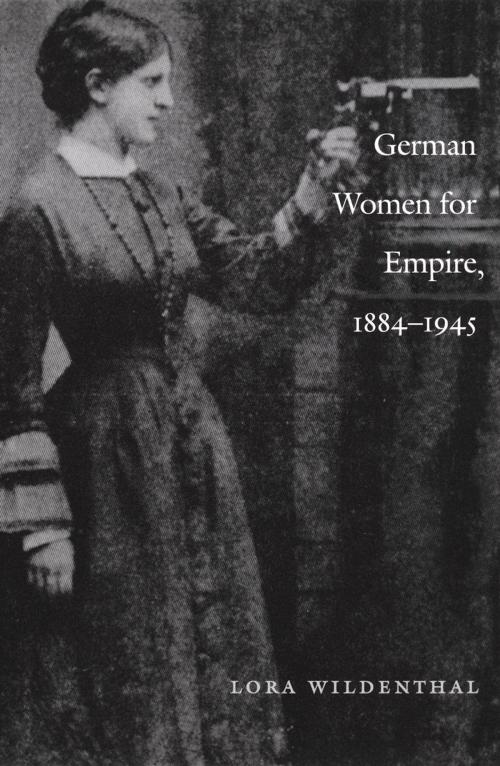German Women for Empire, 1884-1945
Nonfiction, History, Germany, Social & Cultural Studies, Social Science, Gender Studies, Women&| Author: | Lora Wildenthal, Julia Adams, George Steinmetz | ISBN: | 9780822380955 |
| Publisher: | Duke University Press | Publication: | November 28, 2001 |
| Imprint: | Duke University Press Books | Language: | English |
| Author: | Lora Wildenthal, Julia Adams, George Steinmetz |
| ISBN: | 9780822380955 |
| Publisher: | Duke University Press |
| Publication: | November 28, 2001 |
| Imprint: | Duke University Press Books |
| Language: | English |
When Germany annexed colonies in Africa and the Pacific beginning in the 1880s, many German women were enthusiastic. At the same time, however, they found themselves excluded from what they saw as a great nationalistic endeavor. In German Women for Empire, 1884–1945 Lora Wildenthal untangles the varied strands of racism, feminism, and nationalism that thread through German women’s efforts to participate in this episode of overseas colonization.
In confrontation and sometimes cooperation with men over their place in the colonial project, German women launched nationalist and colonialist campaigns for increased settlement and new state policies. Wildenthal analyzes recently accessible Colonial Office archives as well as mission society records, periodicals, women’s memoirs, and fiction to show how these women created niches for themselves in the colonies. They emphasized their unique importance for white racial “purity” and the inculcation of German culture in the family. While pressing for career opportunities for themselves, these women also campaigned against interracial marriage and circulated an image of African and Pacific women as sexually promiscuous and inferior. As Wildenthal discusses, the German colonial imaginary persisted even after the German colonial empire was no longer a reality. The women’s colonial movement continued into the Nazi era, combining with other movements to help turn the racialist thought of the late-nineteenth and early-twentieth centuries into the hierarchical evaluation of German citizens as well as colonial subjects.
Students and scholars of women’s history, modern German history, colonial politics and culture, postcolonial theory, race/ethnicity, and gender will welcome this groundbreaking study.
When Germany annexed colonies in Africa and the Pacific beginning in the 1880s, many German women were enthusiastic. At the same time, however, they found themselves excluded from what they saw as a great nationalistic endeavor. In German Women for Empire, 1884–1945 Lora Wildenthal untangles the varied strands of racism, feminism, and nationalism that thread through German women’s efforts to participate in this episode of overseas colonization.
In confrontation and sometimes cooperation with men over their place in the colonial project, German women launched nationalist and colonialist campaigns for increased settlement and new state policies. Wildenthal analyzes recently accessible Colonial Office archives as well as mission society records, periodicals, women’s memoirs, and fiction to show how these women created niches for themselves in the colonies. They emphasized their unique importance for white racial “purity” and the inculcation of German culture in the family. While pressing for career opportunities for themselves, these women also campaigned against interracial marriage and circulated an image of African and Pacific women as sexually promiscuous and inferior. As Wildenthal discusses, the German colonial imaginary persisted even after the German colonial empire was no longer a reality. The women’s colonial movement continued into the Nazi era, combining with other movements to help turn the racialist thought of the late-nineteenth and early-twentieth centuries into the hierarchical evaluation of German citizens as well as colonial subjects.
Students and scholars of women’s history, modern German history, colonial politics and culture, postcolonial theory, race/ethnicity, and gender will welcome this groundbreaking study.















